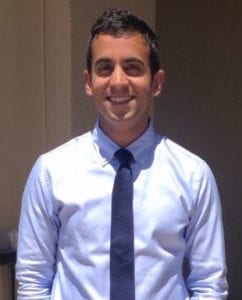Media Contact:
Nalini Padmanabhan
ASHG Communications Manager
301.634.7346
press@ashg.org
For Immediate Release
Thursday, October 8, 2015
5:15 pm U.S. Eastern Time (UTC-05:00)
Findings Reported at ASHG 2015 Annual Meeting

BETHESDA, MD – Researchers have identified a common genetic variant strongly associated with chromosome gains and losses during the early stages of human embryonic development. These errors in cell division, which are almost always fatal to the embryo, are thought to be a major cause of early pregnancy loss in humans and contribute to failure of in vitro fertilization (IVF) treatments. The findings were presented at the American Society of Human Genetics (ASHG) 2015 Annual Meeting in Baltimore.
Healthy human body cells contain 23 pairs of chromosomes, for a total of 46. However, errors during the cell replication process can cause the chromosomes to distribute unevenly, a condition known as aneuploidy. “Early in human development, this process is particularly error-prone, affecting as many as 75 percent of embryos and often causing pregnancy loss as soon as five days after fertilization – before the mother even knows she is pregnant,” explained Rajiv McCoy, PhD, a postdoctoral researcher at the University of Washington and first author on the study.
Previous research has found a correlation between the age of the mother (but not the father) and the likelihood of aneuploidy. In fact, it is the mother’s genes that govern cell replication during the first few days of embryonic development. “However,” Dr. McCoy said, “this relationship did not fully account for the variation in aneuploidy we found within each maternal age group, so we guessed a genetic factor was also involved.”
Using data collected by collaborators at Natera, Inc., Dr. McCoy and colleagues at Stanford University analyzed more than 46,000 embryos from about 2,400 IVF patients, and found that rs2305957, a common variant on chromosome 4 in the mother’s genome, was strongly associated with risk of aneuploidy. Furthermore, aneuploid embryos were more likely to have originated from patients who had experienced IVF failure in the past than those who had not, suggesting that aneuploidy may have been what caused the treatment to fail.
“Surprisingly, about half of women had this genetic variant, and that rate is fairly consistent across populations,” Dr. McCoy said. “If it’s so damaging to reproduction, why does it appear so often? Why isn’t it selected against?”
One hypothesis is that for ancient humans, a lower chance of successful pregnancy per sexual encounter encouraged long-term bonding between men and women, which in turn increased paternal investment in each child, improving the child’s safety and health. Thus, children who were born despite their mothers’ reduced fertility may have been more likely to survive to adulthood and have their own children, passing the variant on to future generations. It is also possible that the variant plays multiple roles; while it reduces fertility, it may be beneficial in another context.
A gene located near rs2305957 provides a clue about what might cause the aneuploidy. The researchers strongly suspect that PLK4, a neighboring gene known to govern the distribution of chromosomes as cells divide, is involved, but this is not yet confirmed.
“It would be great if we could positively identify the gene, the causal variant, and the molecular mechanism that the variant affects,” Dr. McCoy said. To gather evidence, he and his colleagues are examining other genomic data sets involving PLK4 expression to understand the variant’s role in development. They also plan to study the variant in the context of human history, to assess its origins and explain why it remains common.
Presentation: Dr. McCoy will present his research on Thursday, October 8, 2015, from 5:15-5:30 p.m., in Room 307 of the Baltimore Convention Center.
Press Availability: Dr. McCoy will be available to discuss this research with interested media on Wednesday, October 7, 2015, from 10:15-11:00 a.m., in the ASHG 2015 Press Office (Room 301).
Reference: McCoy R et al. (2015 Oct 8). Abstract: Complex mitotic-origin aneuploidy in human embryos: Genetic risk factors and fertility consequences. Presented at American Society of Human Genetics 2015 Annual Meeting. Baltimore, Md.
About the American Society of Human Genetics (ASHG)
Founded in 1948, the American Society of Human Genetics is the primary professional membership organization for human genetics specialists worldwide. Its nearly 8,000 members include researchers, academicians, clinicians, laboratory practice professionals, genetic counselors, nurses, and others with an interest in human genetics. The Society serves scientists, health professionals, and the public by providing forums to: (1) share research results through the ASHG Annual Meeting and in The American Journal of Human Genetics; (2) advance genetic research by advocating for research support; (3) educate current and future genetics professionals, health care providers, advocates, policymakers, educators, students, and the public about all aspects of human genetics; and (4) promote genetic services and support responsible social and scientific policies. For more information, visit: http://new.ashg.org.
9650 Rockville Pike | Bethesda, MD 20814 | 301.634.7300 | society@ashg.org | new.ashg.org
Connect with ASHG on Twitter (@GeneticsSociety) | Facebook | LinkedIn
